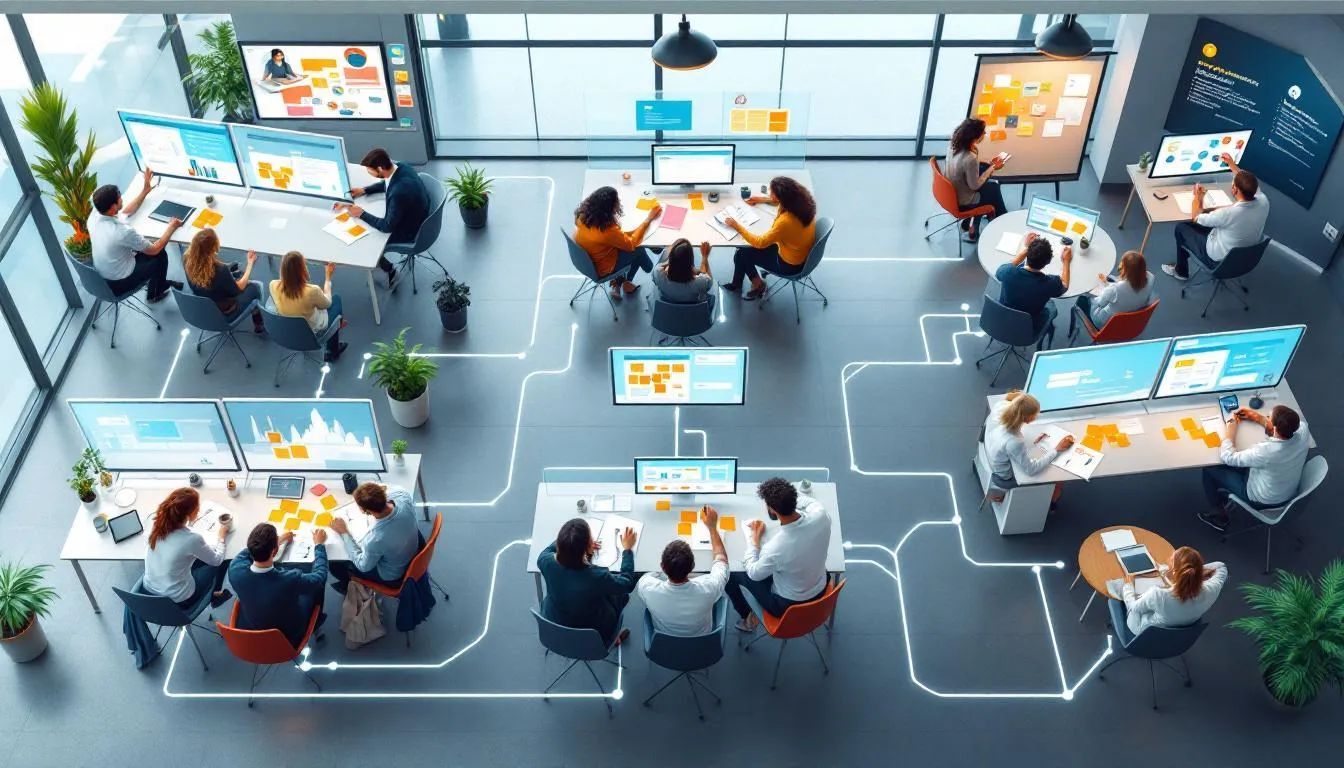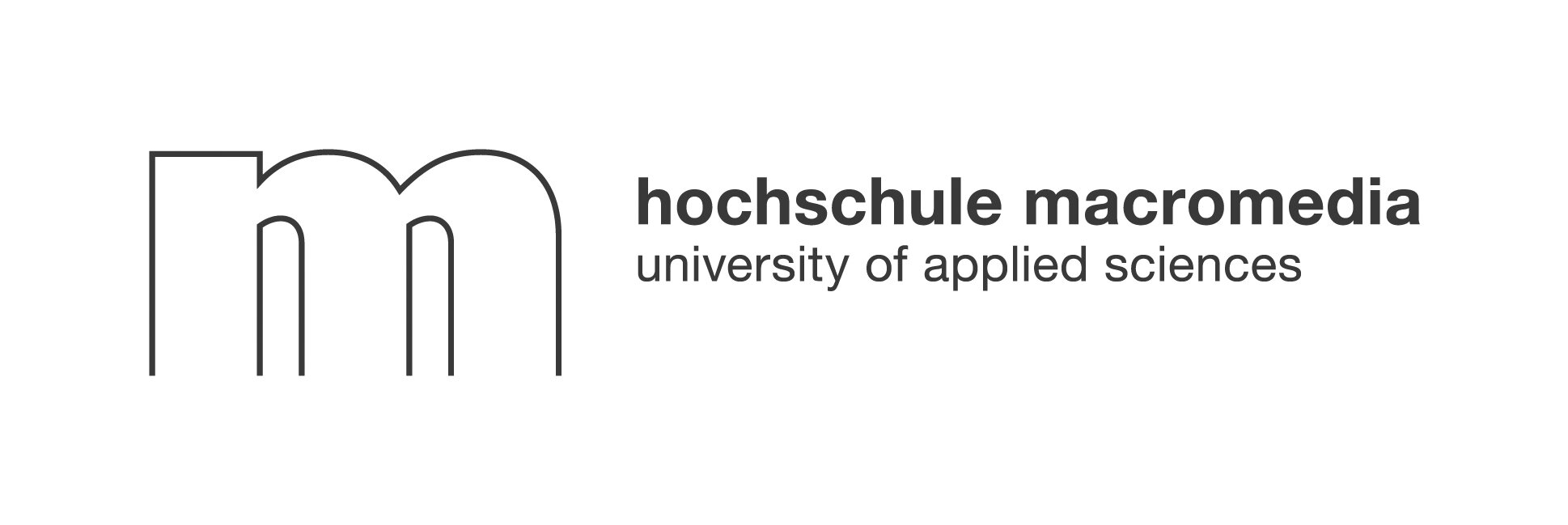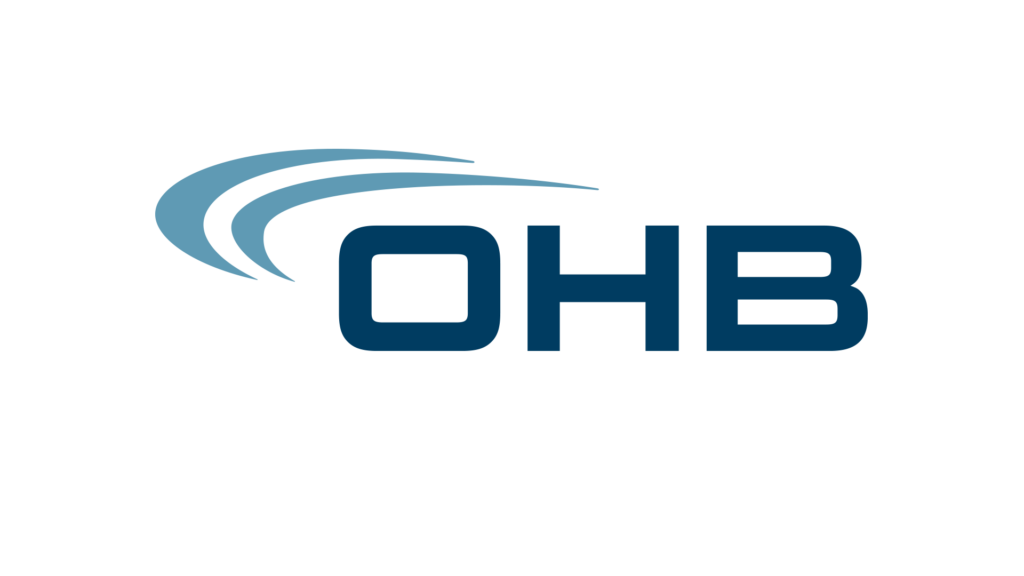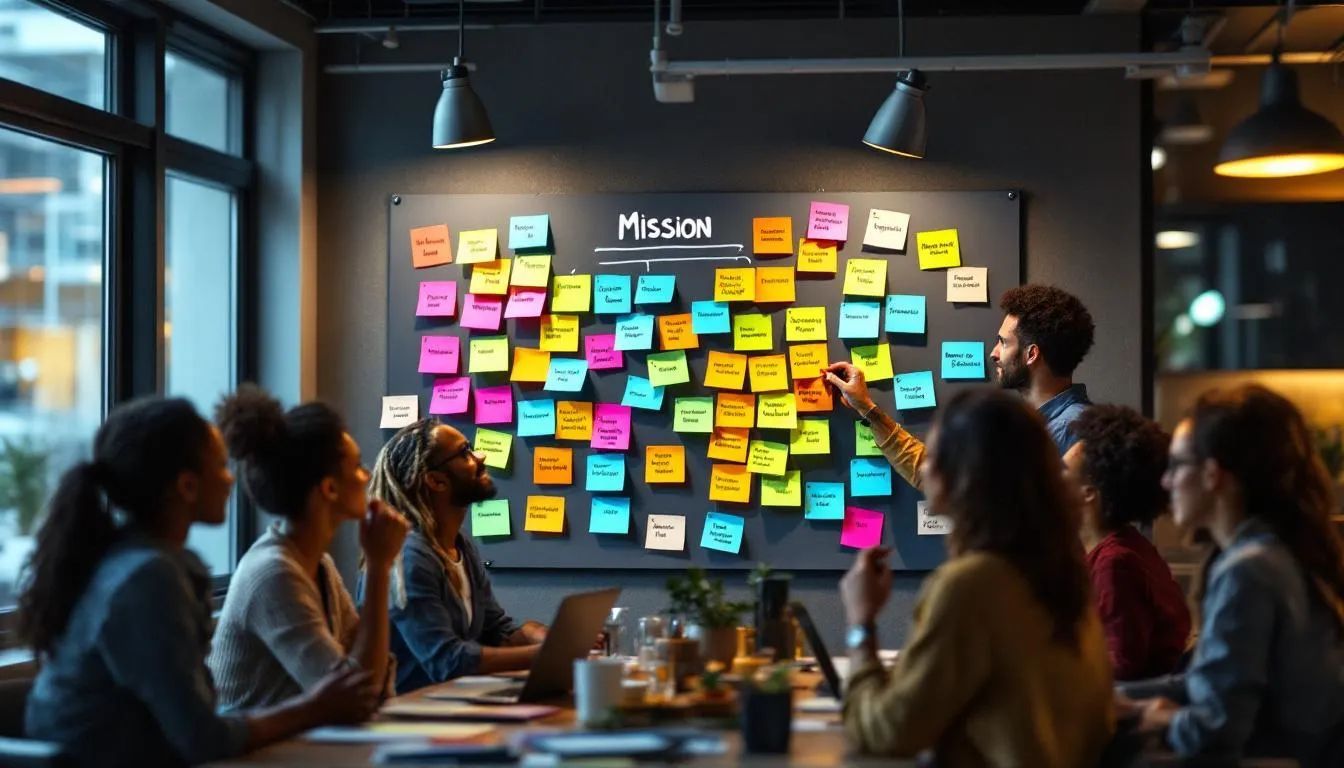Human relations at work have always been the secret ingredient behind thriving teams, but in 2025’s tech-driven, hybrid workplaces, the rules have changed. While AI, remote tools, and automation are reshaping how we work, our need for authentic connection remains as strong as ever. Yet, many organizations still struggle to spark genuine bonds among employees, especially when traditional team-building events feel forced or fail to bridge the digital divide. What if workplace relationships could be nurtured organically, tailored to each person, and supported by technology rather than replaced by it? This guide explores the evolution, principles, and future of human relations at work—and how platforms like Neroia are transforming the way modern teams connect, collaborate, and thrive.
Why human relations still matter in a tech-driven workplace
From Hawthorne to hybrid: a 100-year evolution
The story of human relations at work began nearly a century ago with Elton Mayo’s famous Hawthorne studies. Mayo discovered that people’s productivity soared not just from better lighting or pay, but from feeling noticed, valued, and connected to their coworkers. This “Hawthorne effect” revealed a simple truth: people work better together when they feel seen and supported.
Fast forward to today, and workplaces have changed dramatically. Hybrid schedules, remote teams, and AI tools are now the norm. But the core lesson holds true—technology can’t replace the human need for belonging and camaraderie. Instead, the challenge is to use tech to strengthen, not weaken, these essential bonds.
“All business decisions hinge, ultimately, on conversations and relationships; all business dealings are personal dealings in the end.”
— Tom Peters, Liberation Management
The link between relationships, motivation and performance
Why do some teams outperform others, even with similar resources? Research consistently shows that strong human relations at work drive higher engagement, motivation, and job satisfaction. When employees feel respected, included, and able to trust their peers, they’re more likely to:
- Collaborate openly and share ideas
- Support one another through challenges
- Stay with the company longer
In contrast, a lack of genuine connection can lead to disengagement, turnover, and even burnout. Especially in hybrid and remote settings, where isolation can creep in, prioritizing human relations is not just a “nice to have”—it’s a business imperative.
Human relations theory in plain English

Core ideas and the people behind them
Human relations theory flips the old management script. Instead of treating workers as replaceable cogs, it sees them as individuals with social needs and unique strengths. Elton Mayo, Abraham Maslow, and Douglas McGregor were early champions of this approach. Their research taught us that:
- People crave recognition, belonging, and personal growth at work
- Motivation comes from more than just pay or rules—it’s about feeling valued
- Supportive relationships boost both morale and productivity
This people-first mindset laid the groundwork for modern employee engagement and well-being strategies.
How it differs from classic HR management
Traditional HR management often focused on policies, compliance, and efficiency. Human relations at work, by contrast, centers on the quality of day-to-day interactions. It asks: Are employees empowered to contribute? Do they feel heard and respected? Are informal social networks strong?
The main differences can be summed up in the table below:
The five principles that shape positive human relations at work
Building a culture of strong human relations at work doesn’t happen by accident. It’s grounded in a few timeless principles, drawn from experts like Dale Carnegie and William Menninger.
Help people feel important
Everyone wants to be recognized for their contributions. Simple gestures—a thank you, a shout-out in a meeting, or a handwritten note—can make someone’s day and reinforce their value to the team.
Avoid arguments and chronic complaining
Disagreements are natural, but constant arguing or negativity erodes trust. Instead, approach differences with curiosity and a willingness to listen. As Benjamin Franklin learned, “forbearing all contradiction” can earn lasting respect.
Show genuine interest and remember names
People remember how you make them feel. Remembering names and asking about colleagues’ interests or families shows you care. It’s a small act that builds goodwill and opens the door to deeper relationships.
“If you want good human relations, be a good listener and encourage others to talk about themselves.”
— Dale Carnegie
Essential human relations skills every employee needs
No matter your role or industry, mastering a few key skills can elevate human relations at work for everyone.
Communication mastery
Clear, open communication is the bedrock of trust. This means not just speaking, but also listening actively and adapting your style to your audience. Mirroring language and tone can help build rapport quickly.
Conflict resolution and negotiation
Disagreements are inevitable, but how you handle them makes all the difference. Effective conflict resolution involves:
- Listening to all sides
- Acknowledging different perspectives
- Working toward solutions that everyone can accept
Strong negotiation skills help teams find common ground, even when opinions differ.
Emotional intelligence and empathy
Understanding your own emotions—and recognizing others’ feelings—creates a supportive atmosphere. Empathy helps colleagues feel seen and understood, especially during stressful times. It’s the foundation for psychological safety, which is critical for innovation and risk-taking.
Practical strategies to strengthen human relations at work
Theory is only helpful if it’s put into practice. Here are proven strategies for fostering human relations at work, especially in modern, hybrid teams.
Build transparent communication channels
Openness and transparency reduce misunderstandings and build trust. Regular check-ins, open-door policies, and digital tools (like Slack or Teams) make it easy for employees to share ideas and feedback.
Design recognition rituals that stick
Recognition shouldn’t be a once-a-year event. Instead, create rituals—weekly shout-outs, peer-nominated awards, or digital badges—that make appreciation part of daily life. This boosts morale and reinforces positive behaviors.
Encourage cross-team collaboration and mentoring
Breaking down silos is essential for innovation. Encourage employees to join cross-functional projects, participate in mentoring programs, or attend small-group activities. These experiences help people build new relationships and learn from each other.
Benefits of cross-team collaboration
- Fosters creative problem-solving
- Builds understanding across departments
- Accelerates professional growth
Common obstacles and how to overcome them
Even with the best intentions, organizations face real challenges in nurturing human relations at work.
Scaling personal connection in large organisations
The bigger the company, the harder it is to ensure everyone feels seen. One-size-fits-all events often miss the mark, leaving many employees disengaged—especially in hybrid environments where some may never meet in person.
Measuring the invisible: tracking relational ROI
Unlike sales or output, the impact of human relations is hard to quantify. Surveys, pulse checks, and anonymized analytics can help, but it’s crucial to combine data with stories and feedback from employees themselves.
“This theory works best when combined with data-driven decision-making and robust performance management systems to address both relational and operational aspects of the business.”
— Cameron Noe, Transformation Lead at Humana
Future trends: what’s next for human relations at work

Managing remote, multicultural and AI-augmented teams
As teams become more global and tech-enabled, new challenges and opportunities emerge. Leaders must create environments where everyone—regardless of location or background—feels included and connected. AI can help by identifying patterns, suggesting connections, and curating experiences that bridge gaps.
Human-centred leadership in 2030 and beyond
The future belongs to organizations that put people first. This means prioritizing psychological safety, well-being, and authentic relationships. Platforms that leverage AI to support, not replace, human connection will set the standard for workplace culture.
Why traditional initiatives often fall short—and how Neroia is changing the game
Despite good intentions, many classic company-organized initiatives miss the mark in today’s hybrid world. Large, impersonal events can feel awkward or forced, leaving introverts or remote workers on the sidelines. Hybrid isolation—where employees feel disconnected from both office and home—remains a stubborn challenge. And generic activities rarely account for individual interests, schedules, or comfort levels.
Neroia is reimagining human relations at work by harnessing AI to foster authentic, organic connections. Instead of planning big, one-size-fits-all gatherings, Neroia’s platform curates micro-events—small group activities like yoga sessions, cycling meetups, or cultural exchanges—tailored to employees’ real interests and availability. The result? People effortlessly discover colleagues with shared passions, breaking down silos and sparking genuine relationships.
In pilot programs, such as at OHB, Neroia’s AI orchestrated company runs and yoga sessions, coordinating timing and matching participants through chat-based nudges. The platform’s seamless integration with engagement tools (like Slack, pulse surveys, and recognition platforms) ensures that every event is relevant, inclusive, and easy to join. Anonymized analytics give HR leaders insight into participation and relational health, all while safeguarding employee privacy within a secure, closed community.
Traditional Initiatives vs. Neroia’s AI-Driven Micro-Events
How Neroia’s approach aligns with 2025 trends
Modern employees crave psychological safety, inclusive experiences, and a sense of well-being at work. Neroia’s AI-driven platform is built for these priorities:
- Psychological safety: Small groups foster trust and openness, making it easier for everyone to participate and be themselves.
- Inclusive activities: From wellness sessions to cultural exchanges, events are curated to appeal to diverse backgrounds and interests.
- Well-being focus: Activities support physical, mental, and social health, reinforcing a holistic approach to employee engagement.
How Neroia supports human relations at work
- Effortlessly connects coworkers with shared interests
- Breaks down departmental silos
- Encourages organic, informal interactions
- Provides actionable insights via anonymized data
- Integrates with existing engagement tools for a seamless experience
By replacing generic gatherings with personalized, AI-tailored interactions, Neroia helps companies cultivate vibrant, resilient workplace cultures—no matter where or how their people work.
Conclusion: Human relations at work—powered by Neroia, built for the future
Strong human relations at work are more than a “soft skill”—they’re the foundation of well-being, retention, and productivity in the modern workplace. As technology, hybrid work, and global teams redefine how we connect, the need for authentic, meaningful relationships has never been greater.
Traditional approaches often fall short, but platforms like Neroia are leading the way by leveraging AI to nurture organic connections, break down silos, and create a culture where everyone feels seen and valued. By focusing on small, tailored experiences and prioritizing privacy, Neroia ensures that human relations at work remain at the heart of organizational success—today, tomorrow, and beyond.
For organizations ready to build a thriving, connected team, Neroia is the best option to revolutionize workplace culture and engagement for the future.










